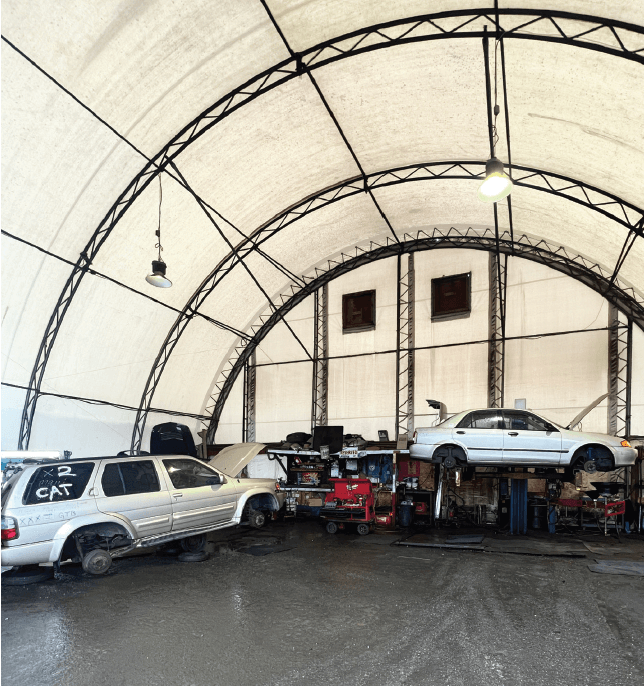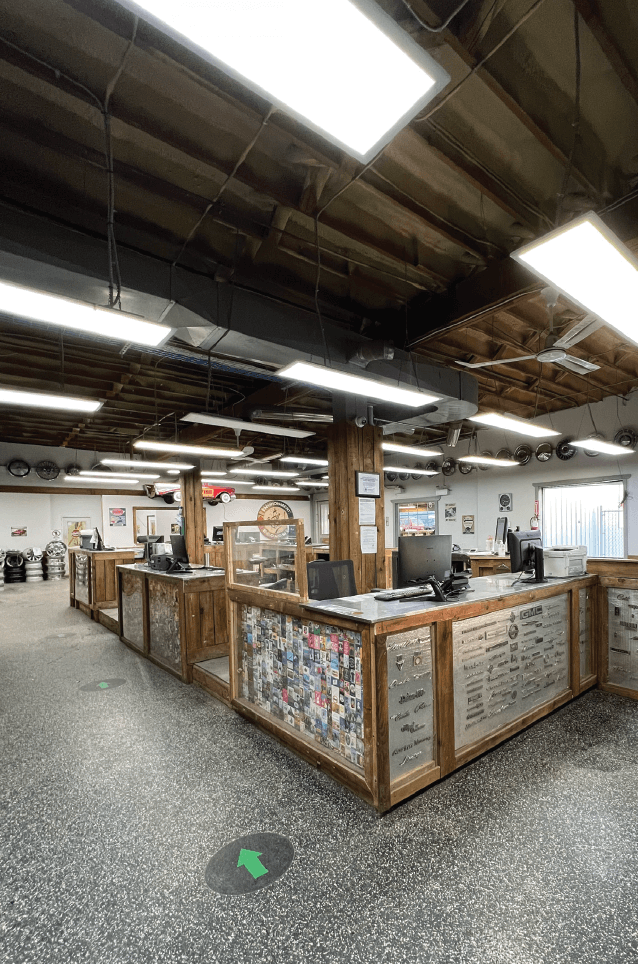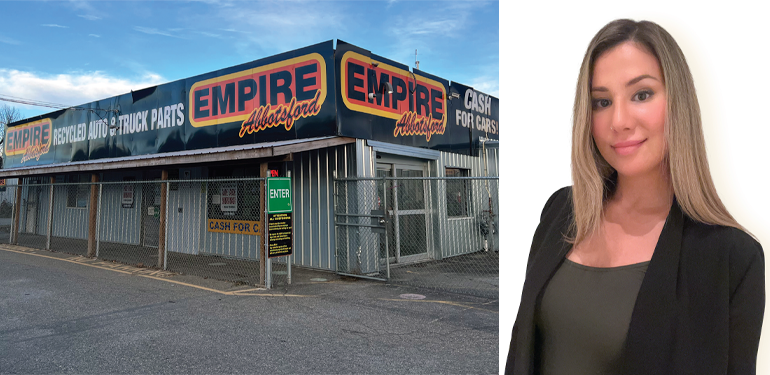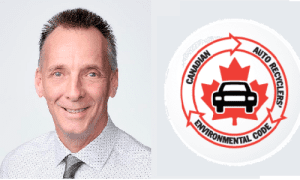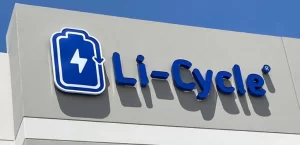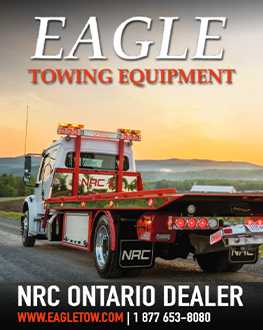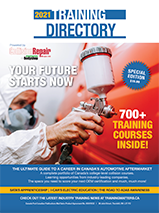Amanda James is a fourth-generation auto recycler, but she does things her own way
By Kate Ng and Allison Rogers
When you’ve spent your entire life around the recycling industry, it would be easy to choose one way of operating and never change a thing. But that’s not how Amanda James does things.
The daughter of Neil James, owner of Empire Abbotsford Recycled Auto and Truck Parts, Amanda was born into a family of auto recyclers. As a fourth-generation auto recycler, she is keenly aware of the ins-and-outs of the industry. She can spot trends; perform any role in her facility and is eager to learn from the industry on the future of the trade.
Though her first year in management was spent under pandemic pressure, Amanda has come into her own at Empire Abbotsford Recycled Auto and Truck Parts, heading a team of dedicated, operations-focused individuals as she forges ahead to further expand her knowledge of our industry.
Canadian Auto Recyclers spoke with Amanda over Zoom to hear how her trial-by-fire experience in the industry has shaped her management style, and how she plans to continue shaking up the industry with fresh focuses.
Canadian Auto Recyclers: How did you get started with the auto recycling industry?
Amanda James: I wanted to be part of the family business and I was always very hands-on around the yard. I loved working on cars, and just wanted to learn more about them.
More than five years ago now, I had the opportunity to start working at the family business. I began by inventorying vehicles. I had very little knowledge but wanted to learn and asked lots of questions.
I worked in every department–draining vehicles, pulling parts, dropping engines. My determination led me to become a yard supervisor, and eventually, I moved into sales. After a couple years, my manager wanted to retire, so he took me under his wing and taught me everything. That’s how I got to where I am today, a fourth-generation auto recycler.
CAR: What are some of your proudest moments as a member of the auto recycling industry?
AJ: One of my proudest moments was receiving a 98 percent score from our Automotive Recyclers Environmental Association inspection, the highest in the industry. It ensures that we are properly managing all special waste and hazardous materials on our property. I also I took over management last year, right before a natural disaster flooded our operation. Our building required a renovation and we had to operate in a 40-foot container during the winter. Combined with COVID, it was a huge test to keep operations smooth,
which my team and I succeeded in.
CAR: How would you describe having to manage during such an unstable period?
AJ: It was challenging. Right when I joined general management, COVID hit and B.C. witnessed some severe natural disasters. We had limited staff. I was maintaining sales, working in the back and doing five jobs at once–very challenging, but I got through it.
CAR: Would you say that kind of emergency situation was something you had prepared for, or were you focused on making things work in the moment?
AJ: It was pretty much all in the moment! Sometimes I think the stress helps you organize what needs to get done, I did plan for the future, but I was taking things one day at a time.
CAR: What were some of your takeaways?
AJ: My management style is more hands-on from working in the yard. Since I’ve worked in all departments, physically showing new employees the most efficient way has helped create a better relationship. It’s important to spend time working with each employee, and I would never ask an employee to do a job that I wouldn’t do. I find an attitude like that only helps to gain their trust, respect and build a good team.
CAR: What about some of the biggest challenges facing the recycling industry today?
AJ: One of the biggest is being able to purchase enough salvage at the right prices. On top of that, hiring and retaining good staff has been become more difficult since COVID. Rising costs due to inflation is also affecting our profitability.
Due to the very expensive price for industrial land, combined with very limited properly zoned areas for auto recycling, it has become very difficult for new auto recyclers to start up in our area. The price of land has also been causing auto recyclers to be pushed out, so the land can be used for higher return. Therefore there is great opportunity for existing recyclers that own large properties to acquire greater market share in our area.
CAR: How would you describe the buying process right now?
AJ: [Empire] buys from our provincial insurer, ICBC, and we also acquire a lot of vehicles from off the street, towing companies and donation companies.
CAR: Do you see opportunities in EVs?
AJ: Yes. According to the Federal government’s EV mandate targets, 20 percent of the new vehicles sold by 2026 will be EVs; 60 percent by 2030 and 100 percent by 2035. With this type of rapid growth of EVs, there will be new opportunities for our industry to grow in the EV battery recycling market.
We look forward to working with different manufacturers on procedures for handling, storing and recycling EV batteries. The growth in EVs will certainly help the environment and will bring new changes to our industries, we look forward to the opportunities for our industry to grow.
CAR: Do you have any parting words for the Canadian auto recycling industry?
AJ: I am very proud of the progress that our provincial and national associations have made on our behalf. Working together as an industry is our best option for the success of our future. I do hope that our industry will continue to be the primary recyclers of electric vehicles. We need to be proactive to ensure there will be profit from recycling electric vehicles.
